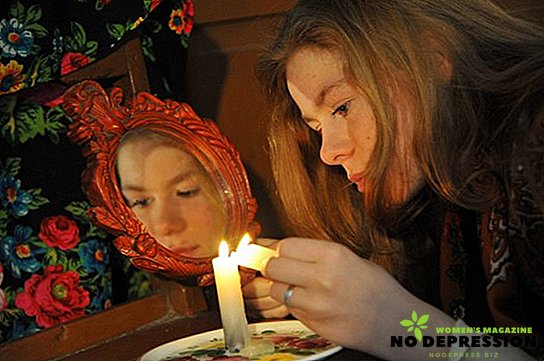Psychologists attach great importance to dreams. Experts believe that dreams, like eyes, are mirrors of our souls. There are many phases and types of sleep. It can be prophetic or appear as a contrived picture, which we subconsciously painted during the day or even a week. Dreams can reflect our secret desires, experiences, or be a warning. Suffice it to recall the great Mendeleev, who discovered the whole chemical table seen in a dream.

Forms of dreams
Despite the fact that doctors say that in a dream the human body is resting, the brain continues to work. Psychologists introduce people into hypnosis in order to penetrate into the depth of consciousness, this is also considered a certain phase of sleep.
If we consider the forms of dreams in terms of terminology, then they are divided as follows:
- Reflective desires of man. They can be expressed in the images of people who are expensive, or an inanimate object that you want to receive. When a person falls asleep, consciousness takes a piece of sustainable thought and embodies it in an abstract or very real picture.
 Reflecting the fears of man. They can be associated with illness or feelings, with unpleasant events of the past days or the threshold of something unpleasant. This is a dangerous phase, and psychotherapists advise you to drive away bad thoughts, especially before bedtime.
Reflecting the fears of man. They can be associated with illness or feelings, with unpleasant events of the past days or the threshold of something unpleasant. This is a dangerous phase, and psychotherapists advise you to drive away bad thoughts, especially before bedtime.- Abstract images. After awakening, a person cannot understand what such strange visions mean. Even a specialist will need a lot of time to give an accurate interpretation. In addition, a person rarely dreams clearly or remembers all visions to the smallest detail.
- Reflecting reality. Most often in these dreams involved events of the past days or fantasies about what will happen in the future. These dreams can hardly be called prophetic. Most likely, here we are talking about a stormy imagination of a person or a review of the situation again in the subconscious.
- Dreams-warnings. They are difficult to interpret, but if a person dreamed of an evil dog in a dream or a tragedy, it is worth remembering the danger that may lie in wait.
There is a mass of dream books. Some are written by psychologists, others are based on people's stories. For example, if a woman catches a fish in a dream, then she will soon become pregnant. If a person dreams of blood, then this is by the arrival of relatives, and not to a terrible crime. If a person climbs the stairs, then it is to career success.
Experts advise to contact psychologists about the interpretation of dreams, because the general description is in the dream books, and you need to sort out the dreams in detail to get to the bottom of the visions.
Psychological concepts
Concentration is the understanding or acceptance of sleep. Visions can affect a person’s fate and predetermine their actions, therefore, any dream should be interpreted correctly.

Consider the types of psychological concentrations and try to apply them to what a person dreams about at night:
- The psychodynamic approach is the Freudian method. The scientist was confident that dreams give a person unconscious motivation, reflect secret desires, can reveal the inner sexuality of a person. It is necessary to divide the dream into three phases: objects, feelings, actions - and study each separately.
- A cognitive approach will help a person know exactly what a dream is. Disassemble dreams into specific details and do not go deep into emotions. Analyze the situation in reality and make comparisons.
- The humanistic approach offers a person to develop himself as a creative person. Dreams can tell about secret desires and unrevealed human talents. In a dream, new ideas may come: interior design, lines of a poem, a novel plot.
- The psychogenetic approach implies that any night visions are laid at the genetic level, and they must be interpreted using self-analysis.
- Behaviorism - involves analyzing the behavior of those people who are involved in a dream. It is necessary to analyze the reactions of living beings. John Watson, who created this method, said that it was completely impossible to study human behavior, especially when it comes to night visions. He advised to concentrate on his own reaction, which arises with a particular behavior.
Most concentrations confirm the statements of scientists that only deeply developed people dream of dreams, and those who don’t see dreams should think and develop their spirituality. Spiritual practices and concentration on objects, feelings, and emotions can help.
Are prophetic dreams heralds of fate?
 Those who dream from Thursday to Friday, on the night of the name of a person or before Christmas and Epiphany are considered to be prophetic dreams. Most often, a person at a subconscious level sees in dreams events that may occur. This is not foresight or clairvoyance. This is just an analysis of the events of your life and options for further action.
Those who dream from Thursday to Friday, on the night of the name of a person or before Christmas and Epiphany are considered to be prophetic dreams. Most often, a person at a subconscious level sees in dreams events that may occur. This is not foresight or clairvoyance. This is just an analysis of the events of your life and options for further action.
If a person dreamed of a close person who is dying, or a dead person has already come in a dream, most likely this is not a sign that the sleeping person is in danger or the dying person must go. Most likely, this embodied the thoughts of man. After all, this is normal when we are worried about a loved one who is ill, or grieving for those who have left this world.
How to interpret images from a dream?
Let's try to interpret dreams by the method of Freud. This method is considered the most interesting and common. It consists of several stages:
- First you need to disassemble the dream into separate elements. If this is a full story, then first divide it into actions, then into specific people, setting and emotions.
 Consider dreams as an opportunity to fulfill desires. Try to separate the unpleasant moments of sleep and move aside fears. Take only the essence. Perhaps in this vision is hidden secret desire, but it is difficult to discern under the negative shell.
Consider dreams as an opportunity to fulfill desires. Try to separate the unpleasant moments of sleep and move aside fears. Take only the essence. Perhaps in this vision is hidden secret desire, but it is difficult to discern under the negative shell.- It is necessary to connect free associations and substitute them to each fragment separately. This is easy to understand by example. If you dream of a stranger, you need to analyze not only his actions, but also the image as a whole. Maybe a particular detail will prompt or remind someone from the past or a person will meet this person in the future.
- The analysis of feelings and emotions is the main phase of dream interpretation. The visual effect may be erroneous, and feelings never lie. If a person subconsciously does not like the actions that occur in a vision, then he will not be able to deceive himself and make him feel differently.
- The final stage is the analysis of those moments that came to be interpreted from the details.
Freud was sure that all visions consist of a multitude of problems or dilemmas, and only by sorting them into elements can one get to the bottom of it and understand the overall picture of the situation. On the other hand, he also put forward another theory: you should not delve too deeply in your mind, otherwise awareness and facts can disrupt the regular course of life. Simply put, you know less - sleep better.
Do dreaming benefit?
Dreams are very useful for people who are not used to expressing their emotions in life. When a person is trapped and unsociable, perhaps dreams are the only way to let go of the load from the heart and express their thoughts. In addition, visions can understand the situation or help to see it from the other side. Sometimes the actions and actions of a person are so muddled that he can easily get confused, and a dream can show particular details as they really are.
Many people take inspiration from their dreams, others wake up with the feeling that something can happen, and this leaves a bitter aftertaste. Forewarned is forearmed. Most people will choose the knowledge of "bad or dangerous", rather than removal from the situation.
The keys to our dreams

The clues or clues of dreams can be hidden in small details or be on the surface. Consider the basic facts about night visions, and maybe they will tell a person that consciousness wanted to convey to him:
- Most people do not remember their dreams. It is best to record the facts from night visions in the morning and then analyze them.
- Having decomposed dreams into elements, it is necessary first of all to compare them with the events that took place recently in life, and to understand: these are just emotions or an omen.
- The human brain is active a maximum of 5%, and if you engage in self-analysis, you can learn to penetrate deep into the subconscious. It is through mental training that people come up with something new.
- Ask for help to dream books, participate in discussions on the forums or discuss your dreams with a specialist.
- Do not attach much importance to bad dreams, because our thoughts are material.
To find the keys to dreams, it is necessary to assess the elements of sleep and understand how our creation relates to the overall picture. Passionate embraces with a stranger may lead to a new relationship or a desire to change something in the old, and tears - to say about spiritual purification or foreshadow the loss.


 Reflecting the fears of man. They can be associated with illness or feelings, with unpleasant events of the past days or the threshold of something unpleasant. This is a dangerous phase, and psychotherapists advise you to drive away bad thoughts, especially before bedtime.
Reflecting the fears of man. They can be associated with illness or feelings, with unpleasant events of the past days or the threshold of something unpleasant. This is a dangerous phase, and psychotherapists advise you to drive away bad thoughts, especially before bedtime. Consider dreams as an opportunity to fulfill desires. Try to separate the unpleasant moments of sleep and move aside fears. Take only the essence. Perhaps in this vision is hidden secret desire, but it is difficult to discern under the negative shell.
Consider dreams as an opportunity to fulfill desires. Try to separate the unpleasant moments of sleep and move aside fears. Take only the essence. Perhaps in this vision is hidden secret desire, but it is difficult to discern under the negative shell.









